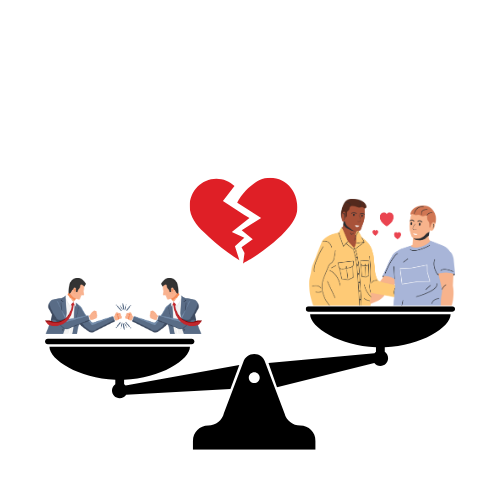“What is my MBTI?” I asked myself, not even knowing what the acronym stood for. What I also didn’t realize at the time was that this simple online test would change the way I thought about myself and others, too. Personally, I believe that the 16Personalities test is one worth taking since it gives you further insight into what you may enjoy or how you interpret certain situations. It still begs the question, though, what does it mean? More evidently, how do terms like “introvert” and “extrovert” begin to make a person raise concerns over the communities they’re in?
The Meyers-Briggs Type Indicator is a test that was created way back in the 20th century. Carl Gustav Jung, a Swiss psychologist, created a theory of personality and the different types that one could have. The theory was then noticed by Katharine Cook Briggs, who then co-authored the now-popular MBTI test. Using the acronyms simplified a broad and thorough breakdown of someone’s personality since they all account for different things.
The first is energy, where the two categories are either introvert or extrovert. These terms have become exceedingly popular, but are important to differentiate. Being an introvert would mean that you rather spend time alone, and feel that social interaction can be draining. Extroverts, however, prefer more group activities and feel energized after having social interactions.
The following categories highlight information such as the mind and how someone interprets information. Nature describes how one copes with their feelings. Tactics reflect how a person plans, makes decisions, or works. Lastly, there’s identity, which shows the confidence that a person has in themselves.
Now, all this information could be a lot for someone to process, but the most notable out of all the traits listed falls under the energy category and whether someone is an introvert or an extrovert. It’s most definitely the most talked about feature that someone could know about their personality; whether you are willing to put yourself out there or not. But, how does an introverted person survive in a community where putting yourself out there is essential?
This is the common struggle that I feel so many college students face, especially freshmen. As I had been mindlessly scrolling through threads created by other Moravian students, I saw people struggling with questions like, “What if I don’t enjoy putting myself out there?” or, “Why do I stay in my dorm room all day?” and it continued to make me wonder, is there a true benefit in the idea of solitude? Is forcing an introvert to be extroverted more damaging than it is beneficial?
I brought questions like these to psychology professor Amy Holtzman Vazquies, and the answers I was given were extremely telling.
I asked Vazquies if she believed that solitude is necessary for an individual, regardless of whether they are introverted or extroverted.
“I believe that it’s important for people to be comfortable with themselves and comfortable with being alone,” Vazquies said.
She goes on to add that the reason why she believes this is because it allows time for individual reflection, and recognizing their beliefs and traits away from outside input.
Yet, many people seem to force themselves into situations where they must put themselves out there, whether they feel comfortable doing so or not. I asked Vazquies if this was a damaging practice.
She responded by saying, “Honestly, my gut answer to all this is moderation. I feel like people benefit the most from having time with others for socialization and for support. But, I also think that people need time to be alone with their own thoughts and feelings to reflect and kind of process their own experiences.”
All in all, you’re not alone. And you most definitely do not need to be intimidated or disappointed by seeing other people constantly hanging out with friends. Every single person is different, and if you feel that you need more time alone than others, there is nothing wrong with that! Do what makes you happy, not what you think will make others happy.







